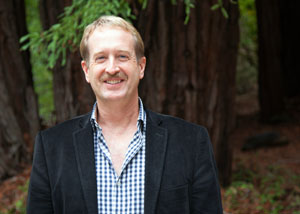Campus News
Building reputation and impact through graduate program growth
By Tyrus Miller, Vice Provost and Dean, Graduate Studies — Graduate education is a defining part of our mission as a UC campus. UC is distinctive from other California state schools for its research and graduate dimension, especially its PhD programs.

Why is UC Santa Cruz growing its graduate programs?
Graduate education is a defining part of our mission as a UC campus. UC is distinctive from other California state schools for its research and graduate dimension, especially its PhD programs. We are specifically charged to train the professors, researchers, and professional experts of the future. We must also respond to today’s knowledge-based economy—exemplified by Bay Area hi-tech and biotech and the creative industries of Los Angeles and Marin County—which demands increasing expert knowledge and research skills. Graduate programs are integral to our research initiatives, and graduate student research counts among our proudest accomplishments. Moreover, our undergraduates benefit from our many graduate students who serve as teaching assistants, research mentors, and role models. They contribute a key piece to our reputation as a site of discovery, innovation, and commitment to social justice.
How is graduate growth being funded?
We are in the third year of a systemwide initiative to redress past inequalities in per-student state funding of some UC campuses. Santa Cruz is poised to receive about $24 million over six years as part of this effort, called “rebenching,” which also provides funding to increase our enrollment of doctoral students. Our primary focus has been on rebuilding the faculty following several years of deep budget cuts, with the related aim of catalyzing new sources of support from research grants, professional programs, industry partnerships, and foundations. The goal is to strengthen areas of existing and emerging campus distinction, such as genomics, environmental science and policy, social justice, globalization, and digital and computational research.
It sounds like the wheels are in motion. Where are we in the process?
In order to remain eligible for ongoing rebenching funding, our mandate is to increase the ratio of doctoral students to undergraduates from just over 7 percent today to 12 percent by 2017-18. That’s a very steep challenge.
The Academic Senate recently discussed a draft set of “guiding principles” for graduate growth. In accord with these principles, departments across campus are hiring in areas of graduate distinction. For example, the Art Department just recruited award-winning game designer Robin Hunicke. Chemistry hired Alexander Azyner, who works on renewable energy. Computer Science brought Lise Getoor to UCSC to conceptualize our data science initiative. Sociology will hire in environmental sustainability, and History hired Elaine Sullivan, an Egyptologist who uses GPS technology in archeological research. These are just a few examples of hires that support areas of campus-wide distinction in research and graduate education.
Who will benefit from this strategic investment?
Ultimately, everyone will benefit. Strengthening our graduate research programs helps UCSC attract top faculty, recruit excellent graduate students and postdoctoral researchers, and admit high-achieving undergraduates. It will create opportunities for new support from government, industry, and private foundations, which will be critical to keeping UCSC strong.
The societal benefits are clear, as well. There is great demand in today’s workforce for people who can respond to complex issues, work collaboratively across disciplines, and bring to bear the expertise gained through graduate study.
Our internal and external goals for graduate growth are mutually reinforcing; it’s a win-win.